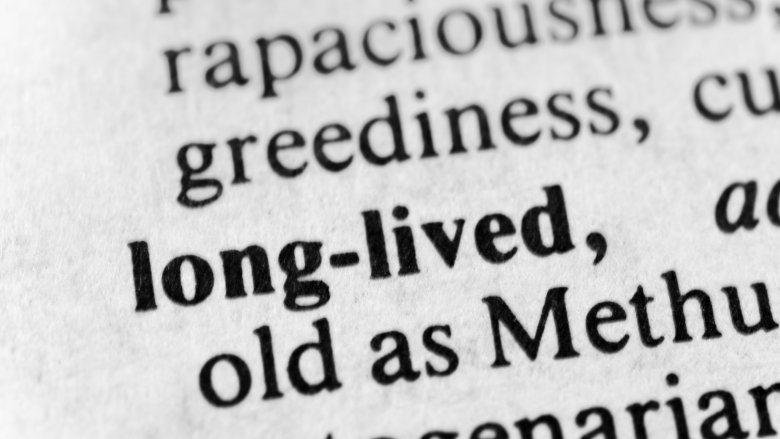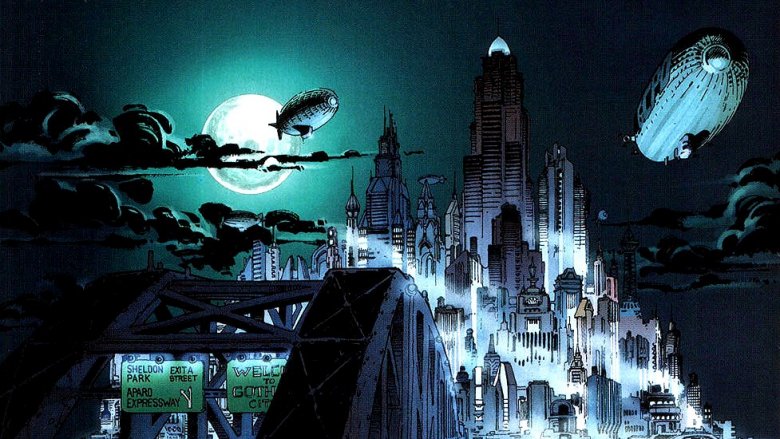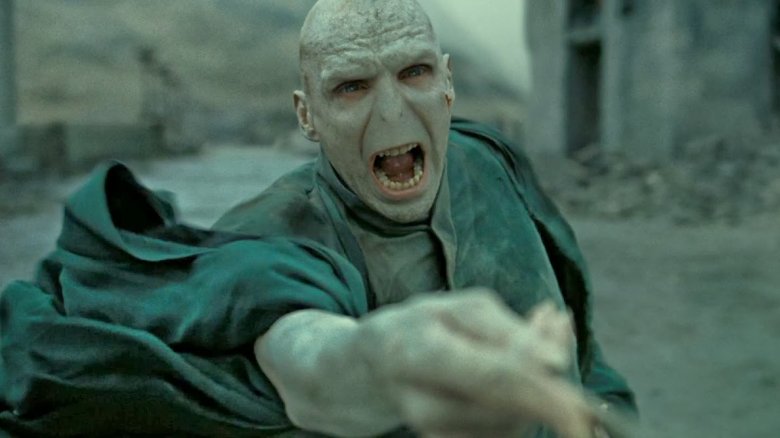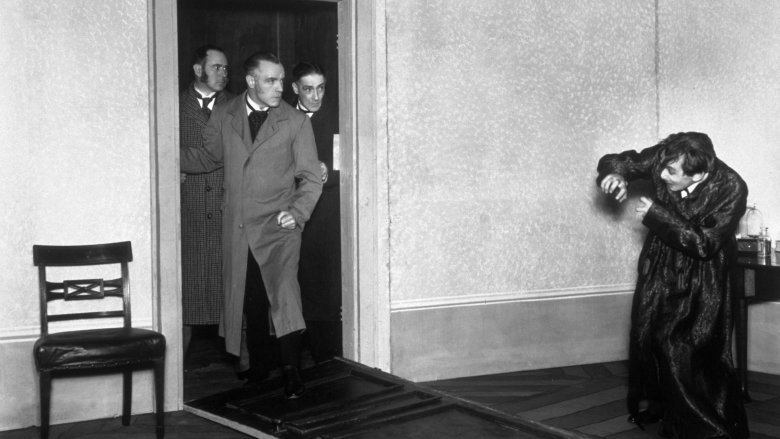Common Words You've Been Mispronouncing This Whole Time
Do you think you already English pretty darn good? Or do you routinely find yourself avoiding conversations because you don't want to embarrass yourself by pronouncing a word incorrectly? Either way, we're here to help. Here are some common words you probably didn't even know you were saying incorrectly.
Gouda
Gouda is a kind of cheese hailing from a city in the Netherlands with the same name. It's creamy, it's delicious and it is consistently one of the most mispronounced items in the dairy aisle. Common sense would dictate that the word should be pronounced with a "g" sound, perhaps something along the lines of "goo-dah." But every time you pronounce it like that, a Dutch person cries, which probably sounds terrifying with their accent. Some sources claim that the word should really be pronounced "gow-dah" but even this is technically incorrect, and we all know that's the worst possible kind of incorrect.
In actuality, the word should be pronounced "how-duh" with a particular, guttural emphasis on the "h" like native Dutch speakers do. This is because the "g" sound as we know it doesn't really exist in Dutch. A Dutch cheese named after a Dutch city definitely wouldn't be pronounced with it. It's fine if you're one of the millions of people who've mispronounced this word, though, because even those YouTube channels dedicated to teaching you the "proper" pronunciation of words still get this wrong all the time.
Comptroller
Comptroller is one of those words you probably heard in a TV show and then never bothered to look up, like State Comptroller Atkins from that one Simpsons episode. In short, a comptroller is a fancy title for a finance official. Looking at the word you'd think it'd be pronounced pretty much the way it's written down: "comp-trole-ur." But bizarrely, the word should sound exactly like the word "controller." So, just like urinating when guests are over, the "p" should be totally silent for minimal embarrassment.
Why? According to the Oxford English Dictionary, the word was coined in the 15th century as a variant of the word "controller" "because of an erroneous association with the French term compte, 'calculation' and its late Latin source computus." The problem is that the French word "compte" is pronounced "count." So when some smartass in the 15th century combined it with the archaic and now defunct word "conterroller" (basically a person who checked papers for mistakes) to create "comptroller" to refer to a person who specifically checked financial documents, it ended up being pronounced almost the exact same way as "controller" anyway. The word now seemingly exists just so that people who pronounce it incorrectly can be smugly corrected by pithy snobs like us.
Long-lived
You probably just pronounced the word "long-lived" in your head with a short "i" ("ih"), and that's probably how you'd hear it pronounced by any news reporter, actor, or robotic AI. If you want to get pedantic about it, though, the word should really be pronounced with a long "i" ("eye") — it should rhyme with "survived."
This is because the word was "formed in Middle English times as a compound of 'long' and the noun 'life,' plus the suffix '–ed,' " according to the American Heritage Dictionary. The spelling of the word was later changed to reflect the most common pronunciation, which stressed a "v" sound instead of an "f," but the long "i" was still present and was pronounced as such for a while. The problem was that this new spelling made the true pronunciation of the word unclear. Over time, the original pronunciation was completely lost and is now nearly totally unknown to the general public, but that hasn't stopped some people from being annoyed by the "wrong" pronunciation. You'd assume they'd have more to do with their lives than worry about preserving archaic word sounds.
Often
You might have a sneaking suspicion that we're just trying to mess with you, but we aren't. The word "often" should be technically pronounced without the "t." This more accurate, but ultimately stupider-sounding pronunciation would be "offen."
This is because the word is derived from the seldom-used word "oft." In the Middle Ages, words like "oft," "fast," and "soft" all had "en" tacked on their cabooses. So "often" should be pronounced like "fasten" and "soften," right? This pronunciation was actually used off and on (oftenon?) right up until the 20th century. An unabridged copy of the 1934 Webster's Dictionary even went as far to call people who pronounced the "t" illiterate. Never mind the fact that a person who defaulted to that pronunciation would probably need to know how the word was spelled. Some modern dictionaries still list both pronunciations as acceptable, but the version with a silent "t" is now much less common. Suck on that one, 1930s Webster's.
GIF
GIF is an acronym of the words "graphic interchange format" and is a file format Invented in the 1980s by a guy called Steve Wilhite. According to Wilhite, he always intended that the word be pronounced with a soft "g" — "jif" like the brand of peanut butter. Most of society has collectively and heroically ignored Wilhite's wishes and instead insists on pronouncing it with a hard "g" based on the pronunciation of the first word of the acronym: "graphic."
Wilhite apparently gets very annoyed about his lasting contribution to the internet ecosystem being mispronounced and has gone on record as saying that the dictionary is wrong to list both pronunciations of the word as acceptable. To be fair, that's something you probably get to say when you invented the thing you're talking about.
Wilhite decided to air his grievances publicly in 2013 when he was given a lifetime achievement award at the Webbys (basically the Oscars for the internet), fittingly using his own creation to do so. So when Wilhite was invited on stage to give a speech while collecting his award, he said nothing and instead arranged for a massive GIF to slowly reveal the following five-word sentence on the big screen: "It's pronounced 'JIF' not 'GIF'."
Argue all you want about how to pronounce the word, but you have to admire the swagger.
Ye
When someone want to make a faux old-timey sign look authentic, they'll probably stick the word "ye" on it. A sign for a medieval taxidermist might read "Ye Olde Fluff And Stuff." Most people would pronounce "ye" as it's written, with a "y." This, as you've probably guessed, is all kinds of wrong. In fact, the word should be pronounced no differently than the word "thee."
This is because the letter "y" in the word "ye" wasn't originally a letter "y." The "y" is a modern representation of the thorn, a letter that no longer exists in the English language. The thorn (which looked like this: þ) was pronounced almost identically to the "th" sound common in English. Because many early printing presses didn't have a character to represent a thorn, a "y" was often used instead. Thus, "þe" was stylized as "ye" with early readers being able to judge from the context. Over time as knowledge of the thorn faded and a market emerged for "authentic" old-fashioned eateries and stores, the word "ye" reemerged. The word continues to be used on things like pub signs to try and make them look old or traditional. We'll just have fresh beer, thanks.
Seuss
Theodor Seuss Geisel is one of the most celebrated, prolific, and German-sounding children's book authors in all of history. Weird then that nobody seems to pronounce his name correctly. According to the man himself, "Seuss" should be pronounced "soice" and should rhyme with the word "voice" when spoken aloud.
For some reason, the public never picked up on this and instead pronounced the name "soose" as if it rhymed with "goose." A friend of his even went to the trouble of writing the following poem to drive home the correct pronunciation of the name, but it didn't really catch on: "You're wrong as the deuce / And you shouldn't rejoice / If you're calling him Seuss / He pronounces it Soice."
Caesar
Gaius Julius Caesar was an iron-fisted dictator who ruled most of the known world until he was rudely stabbed to death by a group of his friends, inspiring countless works of fiction and probably at least one scene in Game of Thrones. Most people pronounce the dictator's last name "seeser," just like the popular salad he had nothing to do with inventing. However, if you go by the classical Latin pronunciation of his name, it should be pronounced "kye-zer." Whats more, the dictator's other well known name, Julius is also often mispronounced and in his own time would have been pronounced "yoo-lee-us," not "joo-lee-us" as it usually is today.
So to sum up, 99 percent of people mispronounce at least two-thirds of the name of one of the most important and well-known figures in history even though the language he spoke served as the root of almost every other word we use today because English is a fickle mistress who refuses to play by anyone's rules but her own.
Gotham
Gotham is the fictional birthplace of everyone's favorite bat-themed superhero. Given that the word has such a strong association with the Dark Knight, you'd be forgiven for thinking it was simply made up by comic writers back in the 1940s. However, the writers actually took inspiration from a real English village (located in South Nottinghamshire) with the same name.
According to legend, the village was basically the place everyone in the 13th century made fun of, with countless apocryphal stories being written and told about the simple-minded residents of the quaint little hamlet. Over time, these stories became the stuff of legend, and the idea of "the mad men of Gotham" was soon enshrined in English folklore.
These historical tall tales would eventually inspire American writers in the 18th century who introduced the word to the public there, which led to it having "implications throughout American literature as a dark underworld, an alter ego to the many metropolis's that were springing up," according to the BBC.
This in turn saw it eventually inspire the creators of Batman, who supposedly stumbled on the word while looking through a phone book and recalled it being synonymous with a city that had a seedy underbelly. So how is Gotham really pronounced? Well, if you go buy the archaic English pronunciation of the small village that inspired the legends that inspired the comic writers who created Batman, it should be pronounced "Goat-ham." Much less threatening, don't you think?
Voldemort
One of J.K. Rowling's favorite pastimes seems to be farting out random pieces of Harry Potter trivia on Twitter to reveal things about characters she never mentioned or alluded to in the original books. One such fart sent shockwaves through the fandom when Rowling revealed in 2015 that the "t" in "Voldemort" is silent.
To be fair to Rowling, the name was inspired by the French word "mort" ("death"), which is pronounced with a silent "t." The original audiobooks of the series narrated by Jim Dale actually followed this rule. But the film adaptations of the books — which were all personally overseen by Rowling to ensure consistency to the source material — pronounced it with a hard "t." And it sounds much cooler, so that's the one we all use today.
As an aside, Rowling herself frequently has to contend with people pronouncing her name incorrectly. She says it rhymes with "bowling," but she's so used to it she simply stopped correcting people several years ago. Along with being kind of depressing to think about, it also probably explains why it took her a decade to correct anyone about Voldemort.
Jekyll
Jekyll is a surname that will forever by synonymous with a singular literary character. As such, it's easy to forget that it's an actual name real people have and not just a cool-sounding word Robert Louis Stevenson pulled out of his nether regions. Scottish in origin, the name should be pronounced "jee-kill," not "jek-ill." It should rhyme with "treacle" when spoken aloud.
Apparently the correct pronunciation was a contentious topic almost from the first day of the book's release eventually leading to a reporter to ask, Stevenson (who was Scottish himself) to weigh in. His answer? The one that rhymes with "treacle" because "the family in England so pronounce it."
Despite the author of the book that made the name famous personally stepping in to clear up any confusion about how to pronounce it, "Jekyll" continues to be pronounced the wrong way in everything from plays to movies because why would we change it now?
Everest
Mount Everest is, as its name suggests, a large mountain that currently spends most of its time hanging around in Nepal. Famous the world over for being the world's tallest mountain, the word "Everest" is firmly lodged in our human hivebrain. But while most everyone pronounces Everest "evv-ur-est" or "evv-rist," the mountain's namesake, George Everest, never pronounced his surname like that. Ever.
Everest and his family all pronounced their last name "eev-rest" so it sounded like the name of the biblical figure. Since the mountain is named after George, we could all pronounce its name the same way he did, right? Well, the world collectively said "nah." Poor George! Famous enough to have a huge mountain named after him but not famous enough for the world to care about the correct pronunciation.





